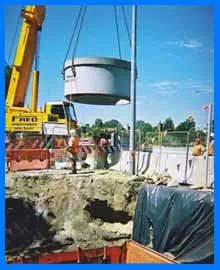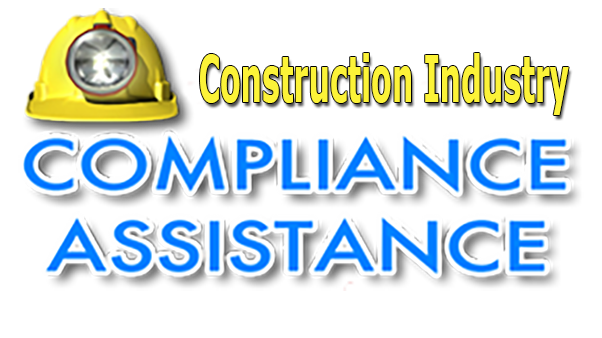
Erosion and Sediment
Control
Best Management Practices (BMPs)
BMPs are a very important part of any construction site Stormwater Pollution Prevention Plan (SWPPP), which is a fundamental requirement of stormwater permits.
Erosion controls—keeping soil where it is—are the heart of any effective SWPPP. Your SWPPP should rely on erosion controls as the primary means of preventing stormwater pollution. Sediment controls provide a necessary second line of defense. The suite of BMPs that you include in your SWPPP should reflect the specific conditions at the site and should be designed to work together.
The following is a list of illustrated BMPs published by EPA. Included are erosion and sediment controls, plus runoff control and planning/management activities. It is not an all-inclusive list, and it does not preclude companies from using other technically sound practices.
Construction Site Planning and Management
- Construction Sequencing
- Erosion and Sediment Control Inspection and Maintenance
- Preserving Natural or Existing Vegetation
Erosion Control
- Chemical Stabilization
- Compost Blankets
- Dust Control
- Geotextiles, Matting and Netting
- Land Grading
- Mulching
- Riprap
- Permanent Seeding
- Sodding
- Soil Retention
- Soil Roughening
- Temporary Slope Drains
- Temporary Stream Crossings
- Wind Fences and Sand Fences
Runoff Control
Sediment Control
- Brush Barrier
- Compost Filter Berms
- Compost Filter Socks
- Construction Track-out Controls
- Filter Berms
- Sediment Basins and Rock Dams
- Sediment Filters and Sediment Chambers
- Sediment Traps
- Silt Fences
- Storm Drain Inlet Protection
- Straw or Hay Bales
- Treatment Chemicals for Particulate Removal from Construction Stormwater
- Vegetated Buffers
Good Housekeeping/Materials Management
- Concrete Washout
- General Construction Site Waste Management
- Spill Prevention and Control Measures
- Vehicle Maintenance and Washing Areas at Construction Sites
More Resources
Stormwater Management for Construction Activities: Developing Pollution Prevention Plans and Best Management Practices) A detailed guidance manual prepared by EPA that provides detailed guidance on the identification of best management practices (BMPs) for construction activities and development of stormwater pollution prevention plans (SWPPP). It includes a set of worksheets, a checklist, and a sample SWPPP.
Caltrans Construction Site Best Management Practices (BMP) Manual (2017). This manual provides instructions for the selection and implementation of construction site best management practices (BMPs). Caltrans requires contractors to identify and utilize these BMPs in the preparation of their SWPPP or WPCP. Construction site BMPs are best conventional technology/best available technology BCT/BAT)-based BMPs that are consistent with the BMPs, and control practices required under the Clean Water Act.
New Jersey Stormwater Best Management Practices Manual (2016). The Stormwater Management rules, N.J.A.C. 7:8 specify stormwater management standards that are mandatory for new major development. The New Jersey Stormwater Best Management Practices Manual (BMP manual) is developed to provide guidance to address the standards in the proposed Stormwater Management Rules, N.J.A.C. 7:8. The BMP manual provides examples of ways to meet the standards contained in the rule. The methods referenced in the BMP manual are one way of achieving the standards. An applicant is welcome to demonstrate that other proposed management practices will also achieve the standards established in the rules. The BMP Manual is a developed by the New Jersey Department of Environmental Protection, in coordination with the New Jersey Department of Agriculture, the New Jersey Department of Community Affairs, the New Jersey Department of Transportation, municipal engineers, county engineers, consulting firms, contractors, and environmental organizations.
Pennsylvania Handbook of Best Management Practices for Developing Areas. This non-regulatory handbook features thirty-seven (37) water quality and wildlife habitat-improving practices that can be used to develop site plans to meet the requirements of the Pennsylvania regulations for erosion control and local stormwater control regulations.
National Stormwater Best Management Practice Database. This database provides access to BMP performance data in a standardized format for over 190 BMP studies conducted over the past fifteen years. The database may be searched and/or downloaded on this website and is also available on CD-ROM. Additional BMP studies are currently being prepared for the database. The database was developed by the Urban Water Resources Research Council (UWRRC) of ASCE under a cooperative agreement with the US Environmental Protection Agency.
